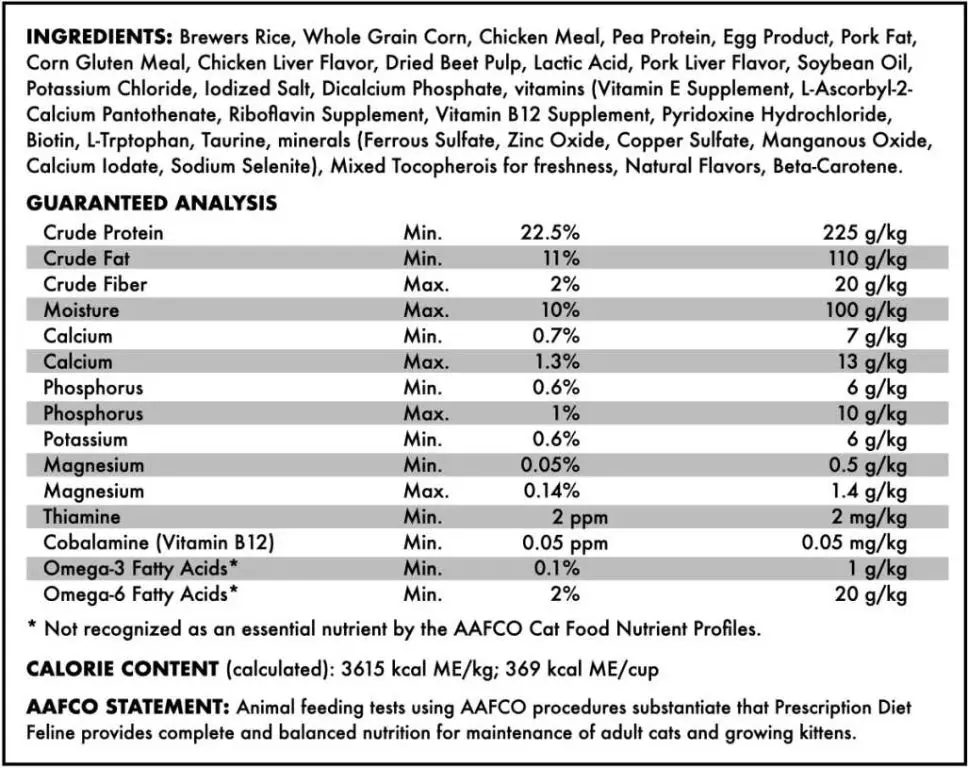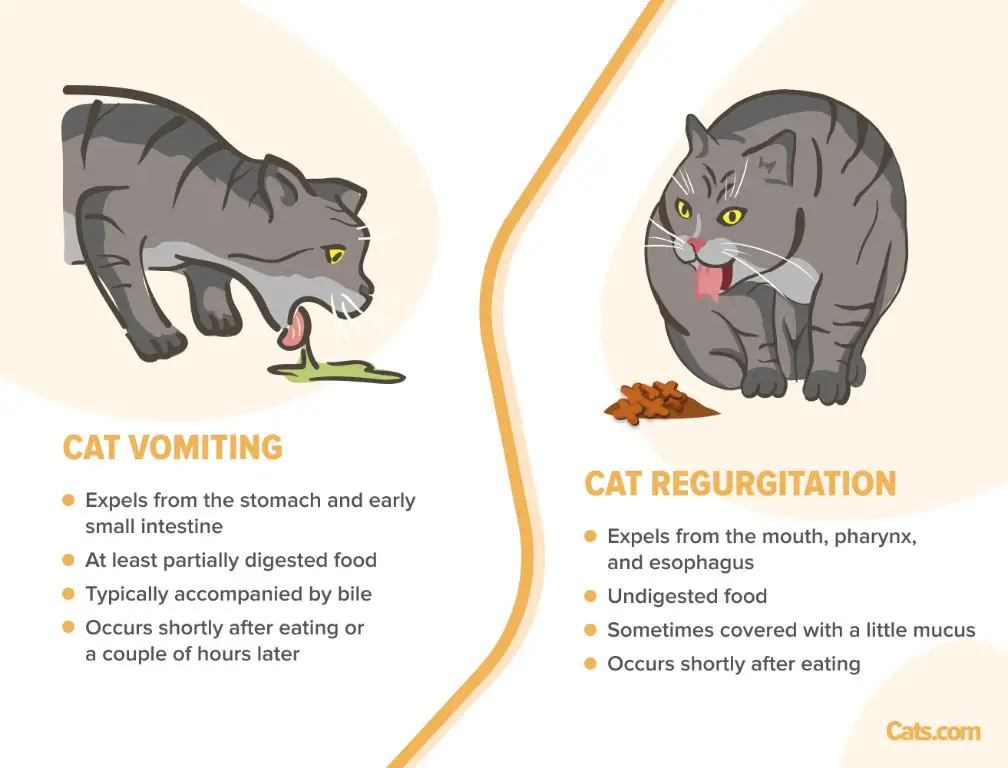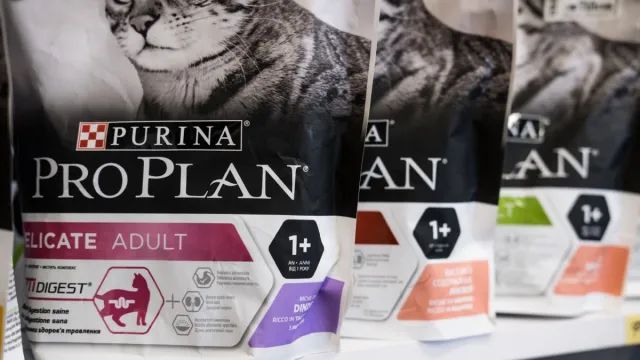Purina is one of the most recognizable brands when it comes to cat food. With dozens of formulations and product lines, Purina offers a wide range of nutrition options for cats. But an important consideration for many cat owners and veterinarians is whether Purina’s products are recommended and endorsed within the veterinary community.
In general, veterinarians assess cat foods based on nutritional standards, ingredient quality, manufacturing processes, and how well the food delivers complete and balanced nutrition for cats. While individual veterinarians may have personal preferences, Purina’s size and reputation mean their products are commonly recommended. This article will provide an overview of Purina’s cat food lines and discuss how they align with veterinary nutritional standards and endorsements.
Purina History
Purina has a long history as a pet food manufacturer. The company was founded in 1894 by William H. Danforth as the Robinson-Danforth Commission Company in St. Louis, Missouri. It was renamed Ralston Purina in 1902 after the founders bought out William Ralston’s interest. By 1926, it had expanded into the pet food industry with the launch of their first dog food called Dog Chow. Purina grew to become a well-known brand over the next several decades (Nestlé Purina PetCare).
In 2001, Nestlé acquired Ralston Purina for $10.3 billion and merged it with their own pet food business, Friskies Petcare Company. This created Nestlé Purina PetCare. The company is now the second largest pet food manufacturer in the world. Purina has major manufacturing plants and corporate headquarters based in St. Louis, where it has maintained a presence for over 120 years (St. Louis – Home to 120+ Years of Purina History).

Overall, Purina has built a largely positive reputation over many decades as a major pet food manufacturer with some well-known brands like Friskies, Purina ONE, and Pro Plan. However, some concerns have been raised over the years about ingredients and manufacturing facilities.
Purina Cat Food Lines
Purina offers several product lines for cats with different health needs and preferences:
Purina ONE – Purina ONE cat foods focus on natural, high-protein recipes with real meat as the number one ingredient. Key features include glucosamine for joint health, antioxidants, and essential vitamins and minerals (Purina ONE Cat Food Products).
Purina Pro Plan – Purina Pro Plan provides nutrition tailored for cats in their prime, senior cats, kittens, and cats needing specialized care with both canned and dry foods. Key features include live probiotics, prebiotic fiber, and Omega-6 fatty acids (Purina Pro Plan Dry Cat Food).
Purina Beyond – The Beyond line features natural, grain-free recipes for cats using high-quality protein sources and ingredients. Key features include real meat, fish or poultry as the number one ingredient, and no corn, wheat, or soy (Purina Beyond Cat Food).
Fancy Feast – This line offers a variety of wet/canned food recipes marketed as more of a “gourmet” or indulgent option for cats. Recipes feature real seafood, chicken, beef, and turkey (Fancy Feast Wet Cat Food).
Ingredient Quality
Purina states that they utilize high-quality protein sources like chicken, salmon, turkey, and egg in their cat food formulas. According to their website, they invest in stringent standards for ingredient purity, nutrition, and food safety at their own manufacturing facilities as well as at their suppliers’ facilities (Source). Purina claims to evaluate each ingredient and conduct extensive testing for concentrations of key nutrients like protein, fat, fiber, and moisture.
However, some customers have raised concerns over the use of corn, wheat, soy, and by-product meals in some Purina formulas, questioning their nutritional value for cats (Source). Purina defends the use of these ingredients, stating they are nutritious parts of the grain or animal and undergo rigorous quality checks. Independent experts note that while these ingredients may be marked as controversial, the processing methods used by Purina allow for nutrient bioavailability.
Ultimately, the quality and sourcing of the ingredients depend on the specific Purina formula. Their premium lines like Pro Plan Veterinary Diets and Purina Pro Plan appear to utilize higher quality ingredients over standard grocery store lines like Purina Cat Chow. According to experts, Purina’s nutrition research capabilities position them to formulate balanced cat foods, though buyers should compare ingredients between formulas (Source).
Nutritional Standards
Purina cat foods are formulated to meet the nutritional standards established by the Association of American Feed Control Officials (AAFCO). These standards ensure that cat foods provide complete and balanced nutrition for different life stages and needs.
All Purina cat food formulas are tested in feeding trials and formulated to meet the nutritional levels established by the AAFCO Cat Food Nutrient Profiles for growth, pregnancy, lactation and maintenance. These nutrient profiles list the minimum levels of crude protein, fat, fiber, vitamins and minerals needed in cat foods.1
Purina has veterinary nutritionists and scientists that formulate their cat foods to contain optimal nutrient levels based on scientific research and cat nutrition studies. They aim to provide the ideal nutrition cats need while also making the food palatable and appealing to cats.

The specific nutritional needs that Purina cat foods are tailored for include:
– Protein for building muscle and body tissues
– Fat for energy and skin/coat health
– Carbs for energy and digestive health
– Vitamins and minerals for immune function, metabolism and organ health
By meeting AAFCO nutritional standards and adjusting formulas based on ongoing research, Purina aims to provide complete balanced nutrition tailored to cats’ needs.
Veterinary Endorsements
Many veterinarians recommend Purina cat food, especially their veterinary diet lines like Purina Pro Plan Veterinary Diets. These foods are formulated to help manage certain health conditions in cats and are only available through veterinarians. For example, Pro Plan Veterinary Diets DM Dietetic Management formulas are high protein and low carbohydrate to help cats with diabetes (1). They also have wet and canned versions like DM Dietetic Management Savory Selects for increased palatability. Since these foods require a veterinary prescription and are designed for therapeutic uses, the fact that vets recommend them shows Purina has strong veterinary backing.
Independent Reviews
Purina cat foods have generally received positive reviews from independent pet experts and review sites. According to a review on Cat Food Advisor, Purina Cat Chow dry cat food receives a rating of 2.5 out of 5 stars1. The reviewer notes that while some Cat Chow products contain quality proteins like chicken, many also contain high amounts of plant-based protein boosters and inexpensive filler ingredients. However, the reviewer acknowledges that Cat Chow provides complete and balanced nutrition.
Veterinarians.org reviewed Purina cat food lines and found that customers rate Purina 4.8 out of 5 stars on average2. According to customer reviews, Purina foods are great for cats with sensitive stomachs and weight control issues. The high ratings indicate most cats enjoy the taste of Purina formulas.
According to an independent analysis on Cats.com, Purina cat food received an overall grade of C+3. While Purina meets nutritional standards for complete and balanced nutrition, the analysis noted the use of plant protein boosters and some artificial preservatives. However, the reviewers found that Purina cat food provides good value for the price.
Common Concerns
In recent years, some pet owners have raised concerns about potential issues with Purina cat food products. One of the most prominent controversies involved claims that changes to the recipe for a popular Purina food led to kidney problems for some cats. According to owners, after Purina altered the formula in March 2021, their cats started experiencing symptoms like vomiting, diarrhea, and dehydration. While Purina stated that extensive testing was done on the new recipe, they did pull it from shelves in some markets amid the complaints.

Additionally, Purina faced a class action lawsuit in late 2022 alleging their marketing claims of “natural” ingredients were misleading, given the food contains some synthetic additives. However, Purina maintains their products go through rigorous quality and safety checks.
It’s important to pay attention to any issues reported by other pet owners. Consult with your veterinarian if you have any concerns after transitioning foods or noticing changes in your cat’s health. However, large companies like Purina with extensive R&D do typically implement many controls and protocols around product safety.
Owner Experiences
Owner anecdotes and real-life experiences with Purina cat foods offer valuable insight. Many cat owners have used products like Purina Cat Chow, Pro Plan, One, and Beyond for years. Reviews are mixed and highlight common pros and cons of Purina cat foods.
In a Consumer Affairs review, Donna R. reported using Purina products for over 30 years: “Excellent cat & dog foods. All my pets have lived long, healthy lives eating Purina products.”
However, some owners report issues after feeding Purina foods. On Amazon, S. McNeal’s review said: “This cat food killed my perfect healthy 2-year old cat. Autopsy showed crystals and stones in his bladder.”
Overall, Purina cat foods elicit a range of responses from owners. While some report excellent results, others have had concerning experiences. Carefully evaluating ingredients, consulting vets, and monitoring cats’ reactions can help owners make the best choice for their pets’ needs.
Conclusion

So is Purina cat food veterinarian recommended? Based on comparing their formulas against industry standards for nutrition and quality ingredients, along with considering valid concerns from owners, Purina generally seems to provide a solid option that most veterinarians would recommend. Their extensive testing, nutritional balance, and ingredient quality in lines like Pro Plan and ONE meet feline health needs.
While there are always exceptions, and certain sensitive cats may do better on more specialized formulas, Purina has demonstrated a long-standing commitment to feline nutrition. The majority of vets consider their foods like Purina Pro Plan a safe, nutritious choice for the average cat owner. So in summary, Purina can be considered a vet-recommended cat food brand for its formulas that deliver complete and balanced everyday nutrition.
However, as with any cat food, owners should monitor their individual cat’s health and adjust accordingly. Consulting directly with a trusted veterinarian to choose the optimal diet for each cat based on their needs is always advisable.

